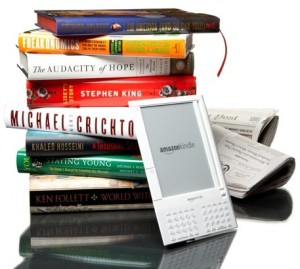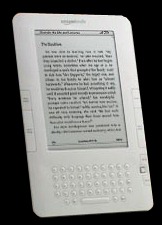Jason Starr joins us today, filling in for Michelle Gagnon. Jason’s latest thriller, PANIC ATTACK, is on-sale now from St. Martin’s Press. Michael Connelly calls PANIC ATTACK "the ultimate page-turner" and Jerry Stahl says PANIC ATTACK is "the perfect thriller." It’s a terrific beach read, so be sure to pick up a copy today.
 Hey, great to be back here, and thanks to Michelle for letting me fill in and blog for her while she is, no doubt, lounging on some exotic beach somewhere, sipping drinks that have little umbrellas in them. Ah, the life of an international best-selling thriller author… Meanwhile, I’m here in dank, sweltering Manhattan, pounding away on my keyboard, like a bad parody of Mickey Spillane. But who said life is fair?
Hey, great to be back here, and thanks to Michelle for letting me fill in and blog for her while she is, no doubt, lounging on some exotic beach somewhere, sipping drinks that have little umbrellas in them. Ah, the life of an international best-selling thriller author… Meanwhile, I’m here in dank, sweltering Manhattan, pounding away on my keyboard, like a bad parody of Mickey Spillane. But who said life is fair?
 With a new book, PANIC ATTACK, out I’ve had marketing on my mind lately, and I think this week may turn out to be a key moment in book publishing history. Okay, maybe I’m exaggerating…a lot…but I think the announcement of Sony’s new Daily Edition reader is really going to shake up the electronic publishing landscape, and maybe the entire publishing landscape.
With a new book, PANIC ATTACK, out I’ve had marketing on my mind lately, and I think this week may turn out to be a key moment in book publishing history. Okay, maybe I’m exaggerating…a lot…but I think the announcement of Sony’s new Daily Edition reader is really going to shake up the electronic publishing landscape, and maybe the entire publishing landscape.
The Daily Edition is a far cry from Sony’s old reader, which wasn’t as sleek at the Kindle and couldn’t download content wirelessly. Early reviews say the Daily Edition is a potential Kindle killer as it does one big thing the Kindle can’t (and won’t) do–it lets readers download books for free. That’s right, via their local libraries, customers will be able to take e-books out on loan for two or three weeks for no charge.
With so much free content available, how will publishers and Amazon be able to charge full price for books? For example, if Michelle, on her exotic beach vacation, wants to read a copy of James Patterson’s latest, where is her incentive to buy the e-edition of the book when she can download it (and as many other books as she wants) for free? Will publishers have to change the way they sell books to libraries, and alter the prices of their e-books? It’s hard to imagine that if readers have a free option for e-books that they will continue to shell out the 10 dollars or more that Amazon is currently charging for new hardcover titles.
 Daily Edition also allows for other booksellers to distribute their content onto the device. This could be a great chance for Indy booksellers to get into the e-books game, but it could also create even more price competition.
Daily Edition also allows for other booksellers to distribute their content onto the device. This could be a great chance for Indy booksellers to get into the e-books game, but it could also create even more price competition.
But the main question about e-readers remains–are these devices here to stay and are books as we know them on life support? A little disclosure here. Late last year, I received a Kindle 2 as a gift. When I’m traveling and commuting it’s amazing. The ability to send Word files to my Kindle is a God’s send for reading manuscripts on the go. Lately, though, I find when I’m home and want something to read I go for an old fashioned book. I guess I feel like I look at a computer screen all day long, and when I want to relax I don’t want to hold a gadget, no matter how easy the screen is on the eyes. So, while a few months ago, I was telling people e-books are the wave of the future, I’m not so sure anymore. I see e-books becoming mainly for travel and commuting, and the regular book sticking around for every other use.
As an author, though, I’m excited about the potential proliferation of e-readers because they create the possibility of infinite book sales and could potentially make "book distribution" obsolete. For example, if The Today Show calls tomorrow and wants me on to discuss PANIC ATTACK, my publisher would have to reprint to satisfy the sudden demand. By the time the books arrived in stores, the demand would no longer exist. But in a world where everyone on the planet has an e-reader, a big national media appearance could generate tens of thousands of sales instantly.
So what do y’all think about all this? How are publishers going to price their books in a landscape where Sony is going to effectively start giving away many titles for free? Are you authors out there embracing e-books or would you rather they disappeared?
Tonight, August 27, at 9pm Eastern Time you can "see" me–well my well-endowed Avatar anyway–on the Second Life Talk Show "Virtually Speaking" I’ll discuss PANIC ATTACK and lots of other stuff. You also can listen to the broadcast live at 9 pm Eastern Time on Blog Talk Radio.
Find out more about Jason Starr and PANIC ATTACK at www.jasonstarr.com






